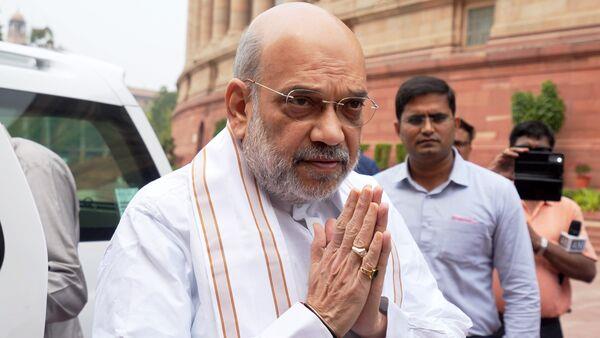
'Against Judgments Of SC': Bar Council Of Delhi Asks Amit Shah To Defer Implementing 'Oppressive' 3 New Criminal Laws
Scheduled to take effect from July 1, 2024, the three new criminal laws-Bharatiya Nyaya Sanhita, 2023, Bharatiya Nagarik Suraksha Sanhita, 2023, and Bharatiya Sakshya Adhiniyam, 2023-mark a significant overhaul aimed at modernizing India's legal framework.
Why Bar Council of Delhi is opposing new criminal laws?The Bar Council of Delhi has flagged that implementation of the three new criminal laws were against judgments of the Supreme Court. 'These amendments are in total defiance and utter disregard of Constitutional principles and Hon'ble Apex court verdict." the letter read.
"Enlargement of period for Police detention from 15 to 60/90 days of New Code, is atrocious and oppressive to say the least.' the Bar Council of Delhi read.
“The power to handcuff without court permission sends a signal of state terror amongst public”, the Bar Council said.
Also Read | India gears up for new criminal laws; over 5.65 lakh police officials trainedThe Bar Council also pointed out that the laws were passed by the previous government and should not be implemented 'without the sanction and approval of newly elected bodies". The Bar Council of Delhi was talking about the new government that formed as Modi 3.0 after the 2024 Lok Sabha Elections. 'New Government at the Centre has taken over', the BCD letter read.
“The Apex Court has held Solitary Confinement as violative of Human Rights but the government has introduced this under the new Code” the Bar Council flagged.
Also Read | Centre adds new criminal laws to training program ahead of July 1 implementationThe Bar Council of Delhi accused 'the Central Government wants to usurp the powers of Delhi Government to dictate and keep Public Prosecutor under your thumb".
New criminal laws come into effect on July 1Three new criminal laws will come into effect across the country from Monday, bringing widespread changes in India's criminal justice system and ending colonial-era laws.
Also Read | CJI says enactment of three new criminal laws 'signify watershed moment'The Bharatiya Nyaya Sanhita, Bharatiya Nagarik Suraksha Sanhita, and Bharatiya Sakshya Adhiniyam are set to replace the British-era Indian Penal Code, Code of Criminal Procedure, and Indian Evidence Act, respectively.
What changes with new criminal laws?Among a flurry of changes that will be brought about by the new criminal laws, some include:
-Judgment in criminal cases has to come within 45 days of completion of trial and charges must be framed within 60 days of first hearing.
-Statement of rape victims will be recorded by a female police officer in presence of her guardian or relative and medical reports have to come within seven days.
Also Read | Govt to bring newly enacted criminal laws into effect from July 1-To provide more protection to the victim and enforce transparency in investigation related to an offence of rape, the statement of the victim shall be recorded through audio-video means.
-Organised crimes and acts of terrorism have been defined, sedition has been replaced with treason and video recording of all search and seizure have been made mandatory.
-A new chapter on crimes against women and children have been added, buying and selling of any child has been made a heinous crime and there is a provision for death sentence or life imprisonment for gang rape of a minor.
-The offences against women and children, murder and offences against the State have been given precedence in the new law.
-Instances of false promise of marriage, gang rape of minors, mob lynching, chain snatching, etc are reported but the current Indian Penal Code did not have specific provisions for dealing with such incidents.
-A new provision has been made for cases such as abandonment of women after making sexual relations on the false promise of marriage.
-Under the new laws, a person can now report incidents by electronic communication, without the need to physically visit a police station. This allows for easier and quicker reporting, facilitating prompt action by the police.
-With the introduction of Zero FIR, a person can file a First Information Report (FIR) at any police station, regardless of jurisdiction.
-In the event of an arrest, the individual has the right to inform a person of his choice about his or her situation.
-Women, persons below 15 years, persons above 60 years and those with disabilities or acute illnesses are exempt from attending police stations and can receive police assistance at their place of residence.
(With agency inputs)
Legal Disclaimer:
MENAFN provides the
information “as is” without warranty of any kind. We do not accept
any responsibility or liability for the accuracy, content, images,
videos, licenses, completeness, legality, or reliability of the information
contained in this article. If you have any complaints or copyright
issues related to this article, kindly contact the provider above.
















Comments
No comment